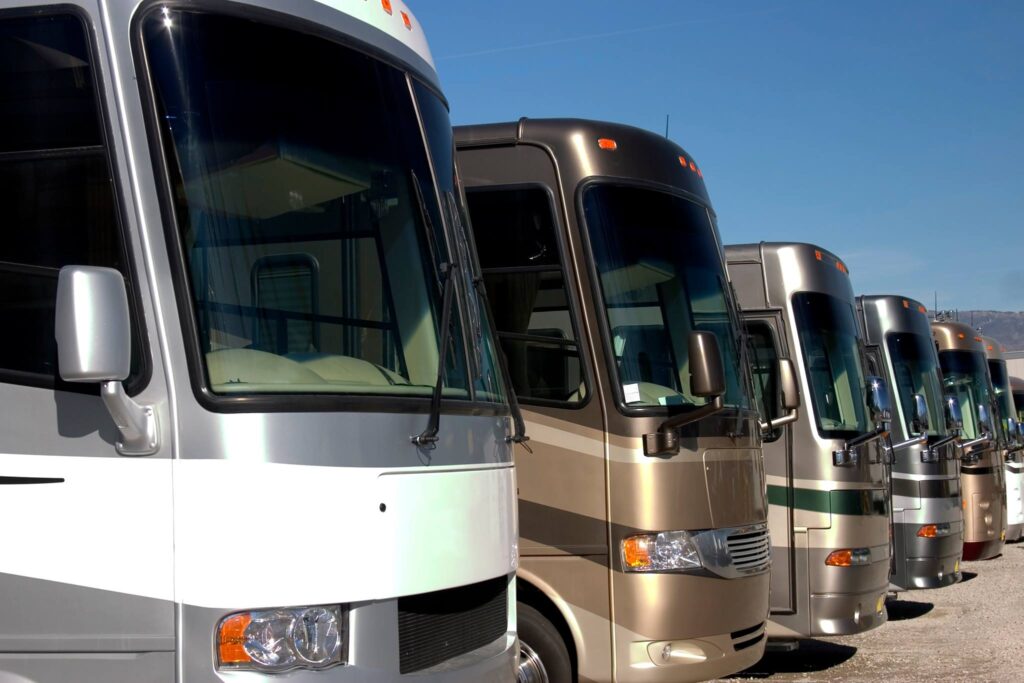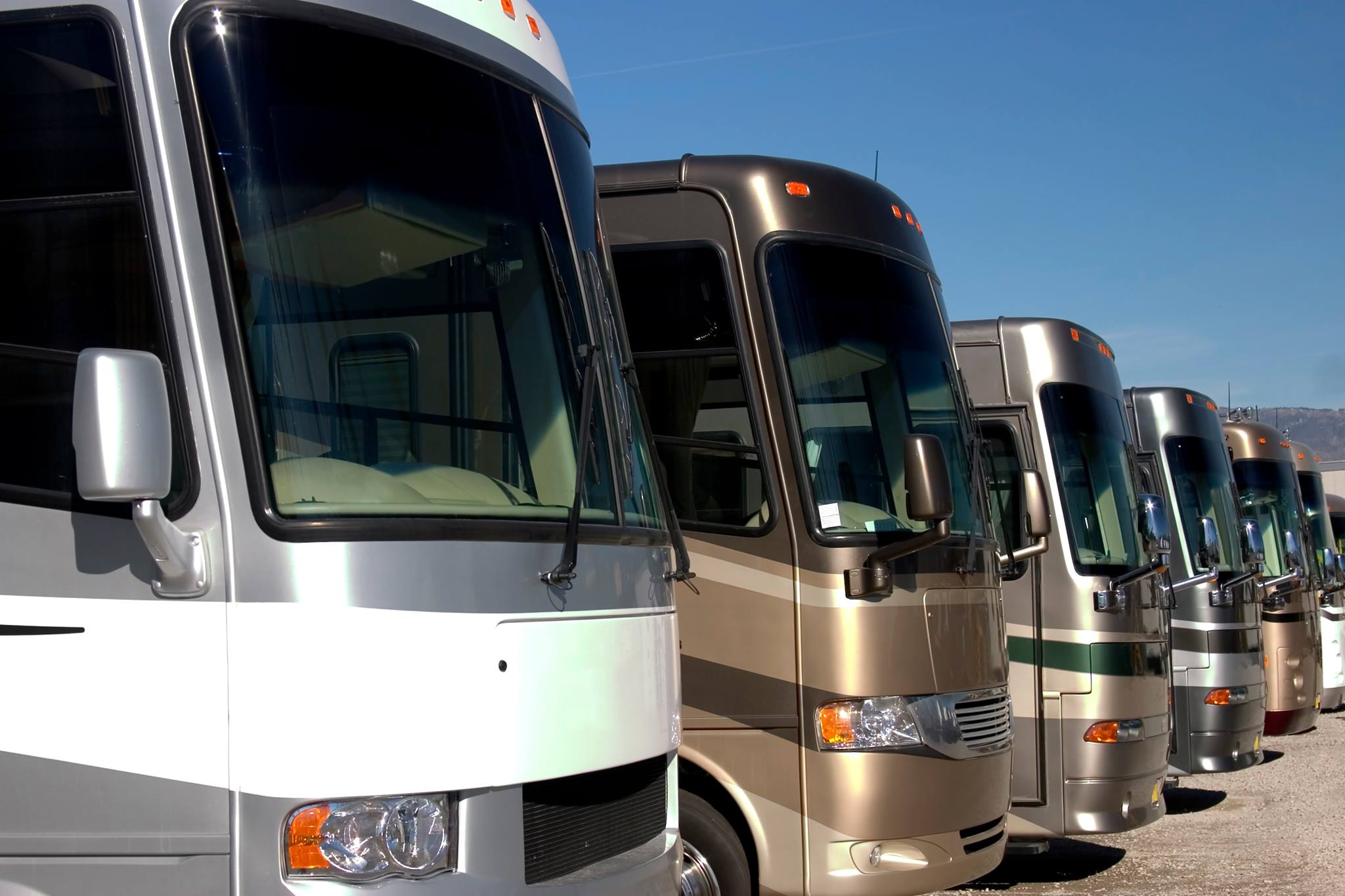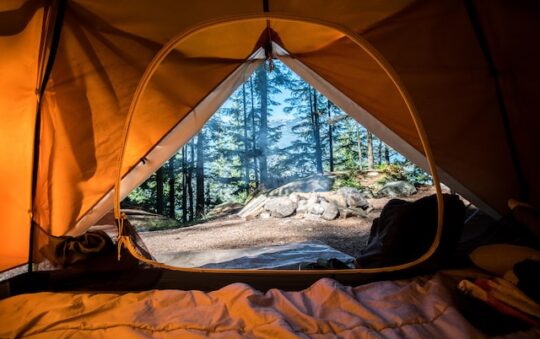
The RV industry has been through a tumultuous period in the last few years. It experienced a surge in demand during the COVID-19 pandemic and is now facing a decline in sales. Elkhart-based Thor Industries, a major player in the RV industry, recently reported a significant slowdown in sales and production in their earnings. The company announced a 52% reduction in RV shipments compared to the previous year. This is consistent with the broader trend in the industry. Consumers have seen higher prices, longer wait times, and supply chain disruptions have contributed to a decline in sales.
The Pandemic’s Impact on the RV Industry

The COVID-19 pandemic had a significant impact on the RV industry, as people looked for ways to travel safely and maintain social distancing. In 2020, RV sales surged, with many people buying or renting RVs for the first time. According to the RV Industry Association, RV shipments reached a record high of 430,412 units in 2020. This was an increase of 4.5% from the previous year. The surge in demand created a backlog for manufacturers and dealers, with many RVs selling out quickly and waiting lists growing longer. However, as the pandemic has progressed and vaccines have become more widely available, the interest in RVs has started to wane. Higher prices, longer wait times, and supply chain disruptions have also contributed to a decline in sales in recent months.
Are Rising Costs Driving People Away?
The rising costs of RV ownership and travel have become a concern for many potential buyers and renters. According to a recent survey, the average cost of owning an RV can be as high as $8,000 per year, including maintenance, storage, and insurance. Additionally, fuel prices, RV campsite costs and other unexpected RV costs can add up quickly. These things can make RV travel less affordable for some. As a result, some people are turning to other travel alternatives, such as car rentals or primitive camping, which can be more cost-effective. Despite the high costs, RV manufacturers are introducing new models and features to attract buyers, including more affordable and compact options. However, it remains to be seen if these efforts will be enough to keep the RV craze going.
The Changing Lifestyles of Americans
The demographic of people interested in RV travel has been evolving in recent years. While it was once associated with retirees, a younger generation has shown interest in RV travel. The pandemic also sparked a new wave of interest in RV travel as people sought out safer and more socially distant travel options. As more people work remotely or have flexible work schedules, RV travel offers a unique opportunity to work and explore at the same time. However, with changing lifestyles and priorities, some people may be less interested in the traditional RV lifestyle and may be looking for alternative ways to explore and travel. As a result, RV manufacturers are adapting to these changes by introducing new models that cater to a broader range of demographics and lifestyles. The future of RV travel will depend on how well the industry adapts to these changing preferences and lifestyles.
RV Industry Challenge: The Availability of Campsites
As the RV industry grows in popularity, the availability of campsites and RV parks has become a challenge. In some areas, campgrounds and RV parks are overcrowded and booked months in advance, making it difficult for RV enthusiasts to find a place to park their vehicle. Additionally, some campsites may not be equipped to handle larger RVs, limiting the number of available sites for these vehicles. To address this issue, some RV manufacturers and rental companies are partnering with private landowners to provide more camping options. Others are exploring the use of technology to help RV travelers find available campsites in real-time. However, as more people turn to RV travel, the availability of campsites and RV parks will remain a critical factor in the industry’s growth and sustainability.
Balancing Adventure with Sustainability

As environmental concerns grow, RV travel is coming under scrutiny for its potential negative impact on the environment. RVs consume large amounts of fuel and emit greenhouse gases, and many RV parks and campsites may not have the necessary infrastructure to handle wastewater and sewage. However, the RV industry is taking steps to reduce its environmental impact. Many RV manufacturers are introducing more fuel-efficient models and using eco-friendly materials in their construction. RV rental companies are also promoting eco-friendly travel practices, such as using renewable energy sources and minimizing waste. Many RV owners are exploring alternative energy sources, such as solar panels and lithium batteries, to power their vehicles. As the RV industry continues to evolve, balancing the adventure of RV travel with sustainability will be a critical challenge.
There is Still Optimism
Despite these challenges, the RV industry is still seeing strong interest from consumers. According to a recent survey by the RV Industry Association, nearly two-thirds of current RV owners are planning to use their RVs more this year, and nearly one-third of non-RV owners are considering buying or renting an RV in the next 12 months. RV manufacturers and dealers are also optimistic about the future, as they continue to see high attendance at RV shows and strong digital traffic to RV-related websites. Many are investing in new technologies and innovations, such as electric and hybrid RVs, that will make RV travel more sustainable and efficient. They are also working to address the current challenges facing the industry, such as supply chain disruptions and pricing pressures, by streamlining operations and adopting variable cost models.
The Future of RV Travel: Innovations and Technology
The RV industry is constantly evolving, with new technologies and innovations being introduced to enhance the RV travel experience. For example, advanced safety features, such as blind-spot monitoring and collision avoidance systems, are becoming more common in RVs. Additionally, the use of smart technology is making RV travel more convenient and comfortable, with features such as voice-activated controls and mobile apps that allow RVers to control their vehicle’s systems remotely. Moreover, RV manufacturers are exploring alternative power sources, such as electric and hybrid engines, to reduce emissions and enhance efficiency. With the rise of the Internet of Things (IoT), RVs are becoming more connected, enabling RV travelers to access real-time information and services. As technology continues to advance, the future of RV travel will be shaped by these innovations. It will be interesting to see where technology takes us in the coming years.
Related: Pros and Cons of Why RV Instead of a Hotel
Influencers and Social Media Effect On The RV Industry

Social media has played a significant role in popularizing RV travel, with influencers and bloggers showcasing their adventures on Instagram and other platforms. RV influencers offer a glimpse into the RV lifestyle and provide tips and recommendations for other RV enthusiasts. Social media has made it easier for people with the same interests to connect with each other and share information about campsites, routes, and destinations. The rise of RV influencers has also contributed to the growth of the RV industry, as more people are inspired to try RV travel after seeing others’ experiences online. However, there are concerns about the impact of influencers on RV travel, such as the over-crowding of campsites and the environmental impact of increased RV travel. The role of influencers and social media in shaping the future of RV travel will be an important topic to watch.
Living the RV Lifestyle: A Sense of Community on the Road
The RV lifestyle is not just about the destination but the journey itself. RV parks and campgrounds provide a sense of community that is hard to find in traditional travel experiences. Many RV parks offer amenities such as swimming pools, playgrounds, and community events, creating opportunities for RV enthusiasts to connect and socialize with each other. Additionally, the freedom and flexibility of RV travel allow for a more spontaneous and adventurous lifestyle, with the ability to change plans and explore new places on a whim. The RV lifestyle can also offer a simpler way of living, with less clutter and more time spent in nature. As more people seek a break from the fast-paced and stressful aspects of modern life, the RV lifestyle offers a refreshing alternative that promotes connection, community, and adventure.
Conclusion
In conclusion, the RV industry has experienced significant growth and popularity in recent years. Many people started to explore RV travel as a safe, flexible, and adventurous way to explore the country. The pandemic was a significant factor in the rise of the RV craze. However, the industry’s growth and popularity have also been influenced by changing demographics, lifestyles, and preferences. The RV industry is constantly evolving, with manufacturers and rental companies introducing new technologies, innovations, and eco-friendly options to enhance the RV travel experience. While there are concerns about the cost, availability of campsites, and environmental impact of RV travel, the industry’s overall outlook remains positive. Although there may be some signs of slowing down, the RV market is expected to continue growing in the coming years. The bottom line is that RV travel offers a unique and exciting way to explore the country. That’s not going to stop anytime soon.




